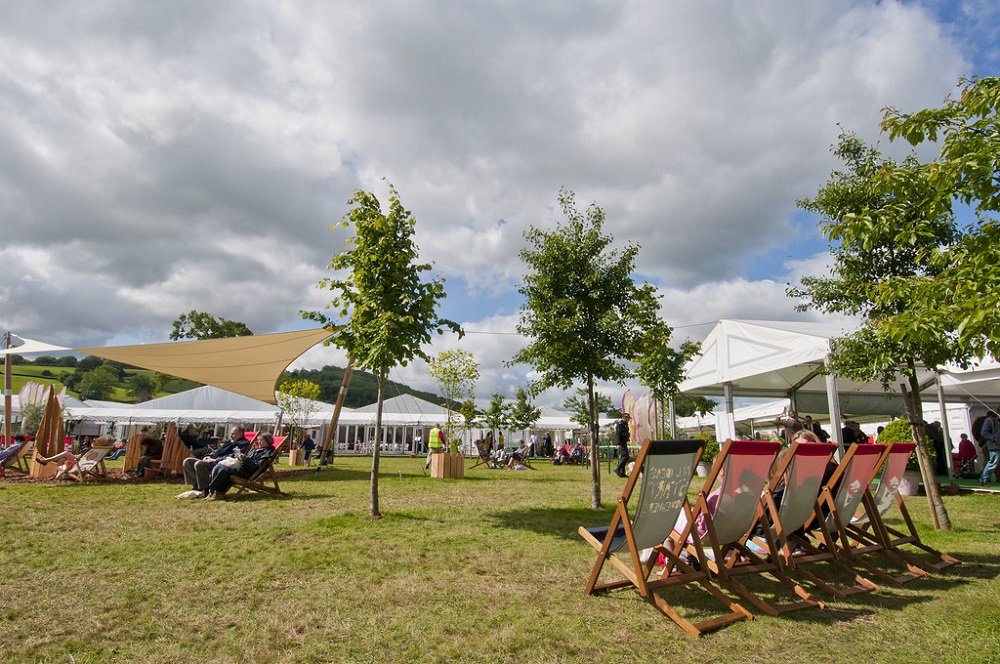New Hay Festival initiative seeks to inspire young people’s creativity

The Hay Festival has announced plans to inspire more children and young people to be creative themselves by strengthening its educational offering through a range of new initiatives, including the Hay Festival Programme for Schools, a Scribblers Tour and the Beacons Project.
The Scribblers Tour 2022 kicks off in February during which five writers of Young Adult fiction (YA) including Kiran Millwood Hargrave and Manjeet Mann are taken as part of Hay to participate in in-person events for secondary school pupils.
Each event will take place at one of five universities in Wales, giving pupils a taste of campus life as well as inspiring them to be creative with storytelling themselves.
Hay also enables pupils to attend the festival either online or live (26th-27th May), via its free programme for schools.
The Beacons Project is a free workshop residency which offers aspiring writers the chance to learn from an established author or poet.
Emphasising inclusion and diversity, Hay works with adult learners, refugees, adults with low literacy and adoptive families. Recent changes in publishing will be reflected on the programme, with more, for example, LGBTQ+ books being showcased because more have been published.
Wide and deep
Reinforcing the festival’s commitment to celebrating the Welsh language, there is now a Welsh-language equivalent of the Scribblers Tour, Scribbles Cymraeg, for which the appetite is “huge” according to Aine Venables, the festival’s education manager, who also plans to work with the National Literacy Trust at its new hub in Newport.
She told The Bookseller: “Our ambition is to reach wide and deep. Back in 2019, our last live festival, we had approximately 10,000 pupils and teachers attending. We quickly pivoted to digital during the pandemic and in 2021 we had more than 100,000 pupils taking part in events online, which is staggering.”.
Julia Eccleshare, who works alongside Venables as children’s director, said: “One of the festival’s main aims this year is to inspire the children and young people who attend to be creative themselves.
“It’s not just imparting the knowledge of the author’s writing, it’s about inspiring the children to do something themselves… We would hope that everyone goes away from Hay being inspired about reading but also to do their own creating, whether that happens on site or later.”
The Hay Player means all of the education events are freely available after taking place and are close captioned in Welsh. The festival is also looking into other translation options so that it can share events with its international festivals.
This year’s Hay Festival will be the first live event in two years and the team has learned a lot about working digitally through the Covid pandemic, making ‘high-value’ workshops with authors and poets, which involve attendees doing more than passively sitting and watching a screen.
Venables and Eccleshare say they are not planning large in-person events this year, because of uncertainty around Covid-19 and possible pandemic restrictions, but they still have big ambitions around the number of young people they can reach.
Venables said: “The schools programme is always sold out and for the past two years we’ve been at capacity. We are confident we will reach capacity for live events. Last year we reached 100,000 pupils digitally, so our ambition is to continue to grow that digital audience.”
Support our Nation today
For the price of a cup of coffee a month you can help us create an independent, not-for-profit, national news service for the people of Wales, by the people of Wales.







Hay festival needs to remember it’s a roots more and the culture from which it springs – the rich border lands of Breconshire – not a fun spot for the Islington pseudo arty crowd partying on the outskirts of Hereford
Totally correct Richard. The fact that you have to emphasise Welsh culture, literature, and language when you are actually sited in Wales speaks volumes. As with many festivals and events that take place here, the indigenous people and culture is always regarded as peripheral or considered as an afterthought.